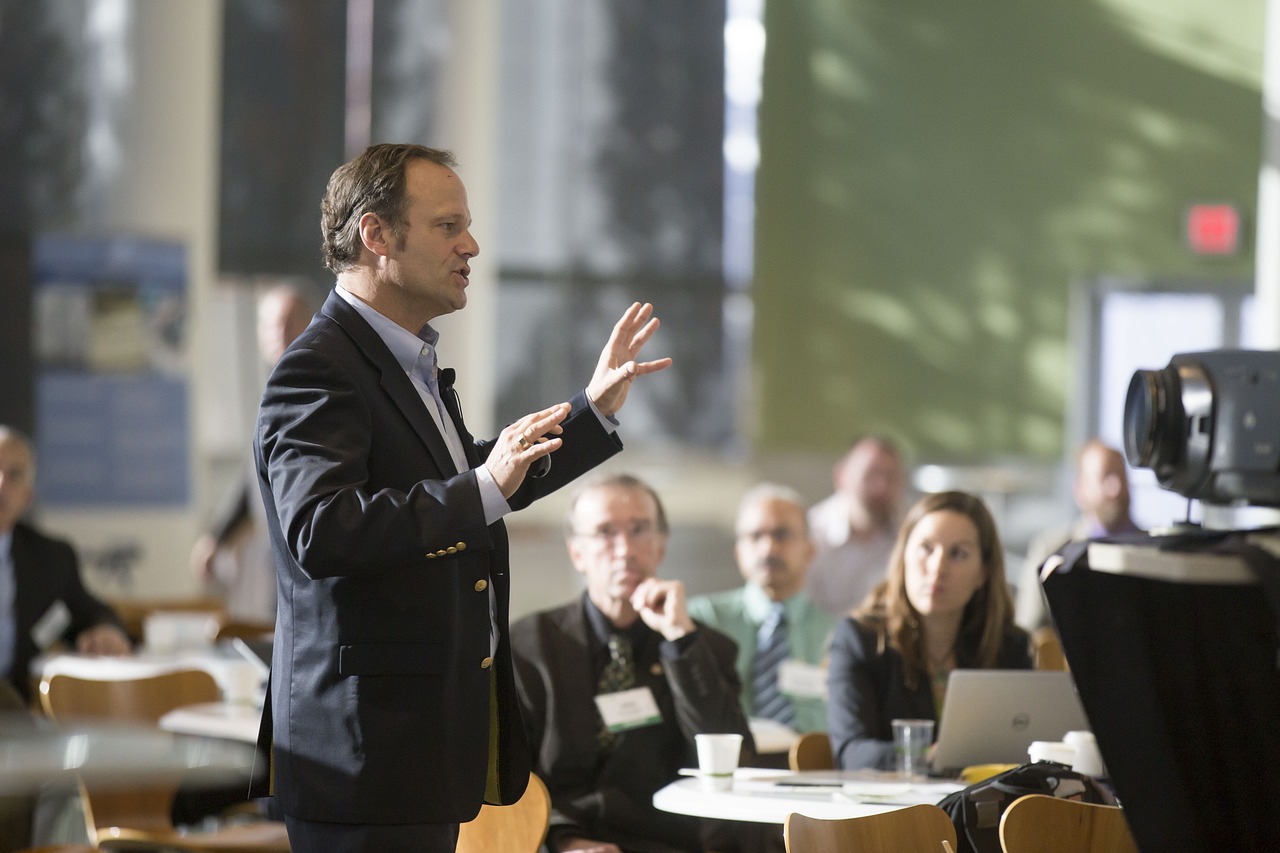I recently gave a keynote speech to a crowd of roughly 3,000 people. I had to catch a flight back home right after it ended, so I bolted out of the conference center to take a Lyft to the airport. As I was leaving the building, someone in the audience caught up to me.
“I’m dying to know,” he said. “How does public speaking come so naturally to you?”
I set my bag down and replied: Gloss reflects more than it reveals.
I then walked off. (Just kidding!). I spent a minute unpacking what I meant, and I’ll do the same here.
When I first started public speaking—which was about nine years ago—I was spectacularly awkward. I would write everything I planned to say and deliver it, word by word, in a monotonous fashion. The only change in my tone was the result of palpable tensions in my voice. As I read from my mental teleprompter, I could sense the boredom wafting from the audience. There was zero connection between my listeners and me.
The same was true in the classroom. The first time I ever taught a class as a law professor, I was so nervous that I tripped over some computer wires, nearly producing an unhappy meeting between face and floor.
But I showed up again, and again, and again, marching to the decisive beat of effort-result, effort-result. Each class I taught, and each speech I gave, was a little bit better than the one that came before. Along the way, I discovered how to build a connection, how to tell a good story, and how to conceal missed beats so the audience doesn’t even notice.
I practiced public speaking four times a week for nine years straight both as a professor and a keynote speaker. Even with that experience, I’m still a work-in-progress. I get tangled up from time to time and stumble over my words. I still get nervous before every speech. But it’s a controlled nervousness—the type that doesn’t paralyze you but keeps you on your toes, makes you over-prepare, and convinces you that if you don’t put out your best every time, the stage can be whisked away from you at any moment.
Here’s the thing: Nothing springs to existence perfectly formed. Lionel Messi, who’s as perfect as soccer players come (sorry, Ronaldo fans!), said it took him “17 years and 114 days to become an overnight success.” Steve Martin echoes the same point: “I did stand-up comedy for eighteen years,” he says. “Ten of those years were spent learning, four years were spent refining, and four were spent in wild success.”
This is why comparison is the ultimate joy killer—and why it’s so dangerous. When you compare yourself to a seasoned professional, the comparison isn’t apples-to-apples. You’re the beta version, and they’re the finished product. They’ve been doing this for years—if not decades—and you’re just starting.
When we engage in this comparison, we assume we’re not good enough or talented enough, so we don’t even bother trying.
But gloss reflects more than it reveals.
The next time you’re tempted to put a role model on a pedestal, keep in mind the messy history behind the glamour. You’re not seeing the earlier versions of that stand-up routine that elicited boos from the audience, the earlier drafts of that book chapter that would make any self-respecting writer cringe, or the early versions of blockbuster animation films like Toy Story that Pixar’s own President Ed Catmull called their “ugly babies.”
It’s like learning how to walk. The early attempts are ugly. At first, it’s a struggle to even stand up. And even when you start walking, you repeatedly fall over. But with each fall, your body learns what to do and what not to do. By learning not to fall, you learn how to walk. You become the envy of all those still toddling their way to their first steps.
The idea is the same whether you’re learning to walk, do stand-up, or score the perfect goal. There’s no magical spell, no pixie dust—no silver bullet.
The professionals make it look easy by repeatedly doing what’s hard.
Bold


